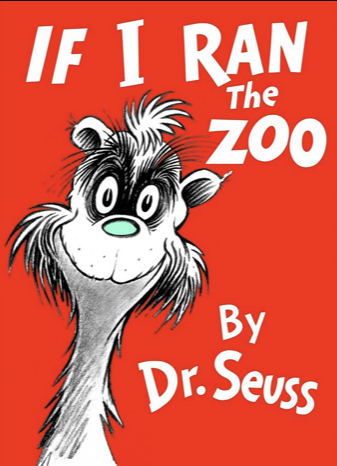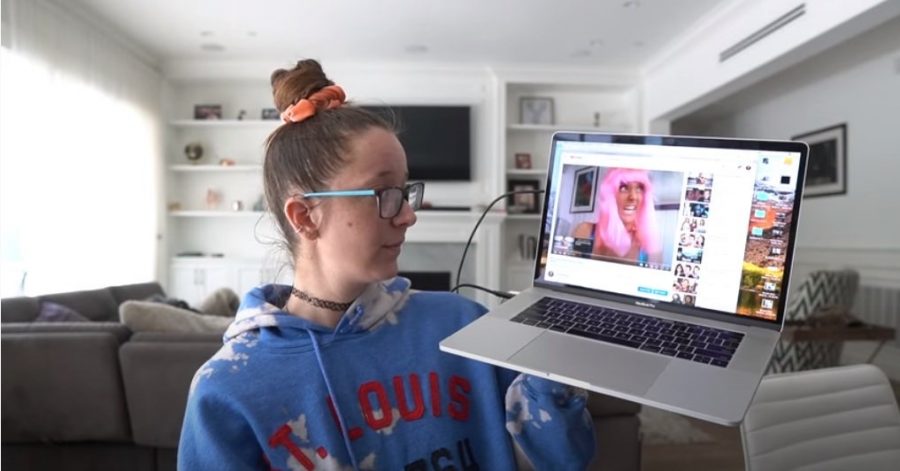Canceling Cancel Culture
Can cancel culture exist if no one has really been canceled?
Screenshot from Jenna Marbles’ video, “A Message”
October 7, 2021
Canceled. The word trends nearly every week on Twitter, taking hold of a new victim. Cancel culture has been circulating the internet for years now. There is no origin to cancel culture, it’s just the collaboration of common opinions from angry people, mostly on the internet. The term is now being used every time a celebrity or company does something that goes against public opinion.
Nike released a shoe with the original U.S. flag and got targeted by cancel culture because the flag existed when slavery was legal. Pepsi was attacked by cancel culture when the company released a racially insensitive commercial addressing the Black Lives Matter protests. David Dobrik got canceled when sexual assault allegations that revolved around his “Vlog Squad” were addressed this year. On paper, calling people and companies out for their poor actions seems like a good thing. But what happens when cancel culture goes too far, or maybe even stops working all together?

What is Cancel Culture?
Cancel culture is the mass rejection of public figures as well as companies when they have done something crude or offensive. Celebrities often get canceled because fans and outside viewers think their influence has been compromised. This year, 22-year-old James Charles got canceled for allegations of pursuing relationships with minors. His fans and a majority of public discourse justified his cancellation by bringing up his influence on young viewers.
Cancel culture silently developed on the internet to deplatform a problematic celebrity, influencer, or company. However, over time, cancel culture has become more prominent than ever. Making celebrities hold themselves accountable and take a break from the public eye has turned into mass hate on the internet. So what is the purpose now?
Negatives of Cancel Culture
Cancel culture on apps like TikTok, Twitter, and Instagram can be far more powerful than we fully understand. One offensive tweet can get someone fired, and rejected socially. In 2013 a thirty-year-old woman named Justine Sacco got one of the first tastes of cancel culture. Before her flight to Africa for a family vacation, she sent out a tweet that would change her life forever. The tweet stated, “Going to Africa. I hope I don’t get AIDS. Just kidding. I’m white!” Within just a few days Sacco was rejected by her family and fired from her job. The internet tore her life to shreds during her 11-hour flight. Soon after the repercussions of Sacco’s tweet began to unfold, she was interviewed about her experience by Jon Ronson at the New York Times. “To me it was so insane of a comment for anyone to make. I thought there was no way that anyone could possibly think it was literal,” Sacco said. This kind of deplatforming was incredibly harmful because the hate for Sacco didn’t just stay online. Is canceling someone for a tweet worth risking their real lives and relationships?
Cancel culture brings up an argument about future generations. If we cancel everything that our generation deems “offensive”, our future generations will lose the knowledge of so much literature and history. For example, six Dr. Seuss books got pulled off shelves recently because of racist imagery. One of these books, “If I Ran the Zoo”, contained a drawing of two barefoot African men wearing grass skirts and tied up hair. These images enforce harmful stereotypes that need to be addressed in literature. However, these children’s books helped shape the generations above us. Dr. Seuss’ books may not appear in history classes, but every child who saw the racism within the books remembers it. Now we can see how these drawings are harmful, which helps us develop a sense of what is appropriate to include in children’s books today. If we shield everyone from the hate and oppression faced in American history, we will never have the opportunity to learn and do better.

Positives of Cancel Culture
Cancel culture can be a really amazing thing when it allows a person to truly reflect on their past actions and change for the better. However, this would not be cancel culture. Calling someone out for their actions and demanding them to take accountability does not deplatform a celebrity or influencer, it gives them the opportunity to grow. Earlier this year, a video of Billie Eilish when she was a young teenager began circulating on TikTok. She was mouthing the lyrics to a saw containing a racially insensitive word used against the Asian community. She wrote a message to her fans on Instagram reflecting on her actions. “Regardless of my ignorance and age at the time, nothing excuses the fact is that it was harmful. And for that I am sorry.” Right now the public can’t know if that experience changed Eilish, but her future actions will answer that question.
Deplatforming someone on the internet doesn’t give them a chance to be a better person in the public eye, which is what fans want. So maybe “canceling” someone isn’t the way to make a change on the internet. Giving them the opportunity to change will make a difference.
Canceled or Retired?
Over the past couple of years there have been countless examples of people being canceled on the internet. During the “beauty drama” fiasco on YouTube in 2020, one particularly large YouTube name left the internet, Jenna Marbles. Marbles had been on YouTube for nearly a decade before making her last video on June 20.
Videos she had made in 2011 and 2012 contained racist comments towards Asian communities and Black communities. Before these videos got brought up by fans, Marbles pulled them out herself. Her last video was titled, “A Message”. “I want to make sure the things I’m putting into the world aren’t hurting anyone,” Marbles says. She made a point in her video to address that her behavior was wrong and because of her ignorance she didn’t deserve her platform. Jenna Marbles left the internet and has now been gone for over a year, she is a part of the “canceled”. But, did Jenna Marbles really get canceled? Canceling someone involves a large group of people on the internet calling someone out on their past actions and knocking them down from their platform. Jenna Marbles left her YouTube channel, she did not get kicked off by fans. By that logic, Jenna Marbles did not get canceled. This leads to the bigger question.
Does Cancel Culture Really Exist?
The short answer is, no, cancel culture does not exist. It is nearly impossible to kick someone of importance off of their platform. Someone who is relevant will always be relevant until they choose to leave the internet and live a private life. Cancel culture is different from holding someone accountable for their actions. Everyone over the past few years who have been “canceled” didn’t lose their platform. Logan Paul still gets the same amount of views. If Shane Dawson dropped a documentary, it would still go on the trending page. Donald Trump can still run for president. And James Charles is still famous. Instead of focusing on kicking someone down when they do something wrong, we should teach them how to start doing the right thing instead. Cancel culture should be replaced with holding influencers and celebrities accountable. You can’t make a celebrity irrelevant, but you can inspire them to change for the better.



